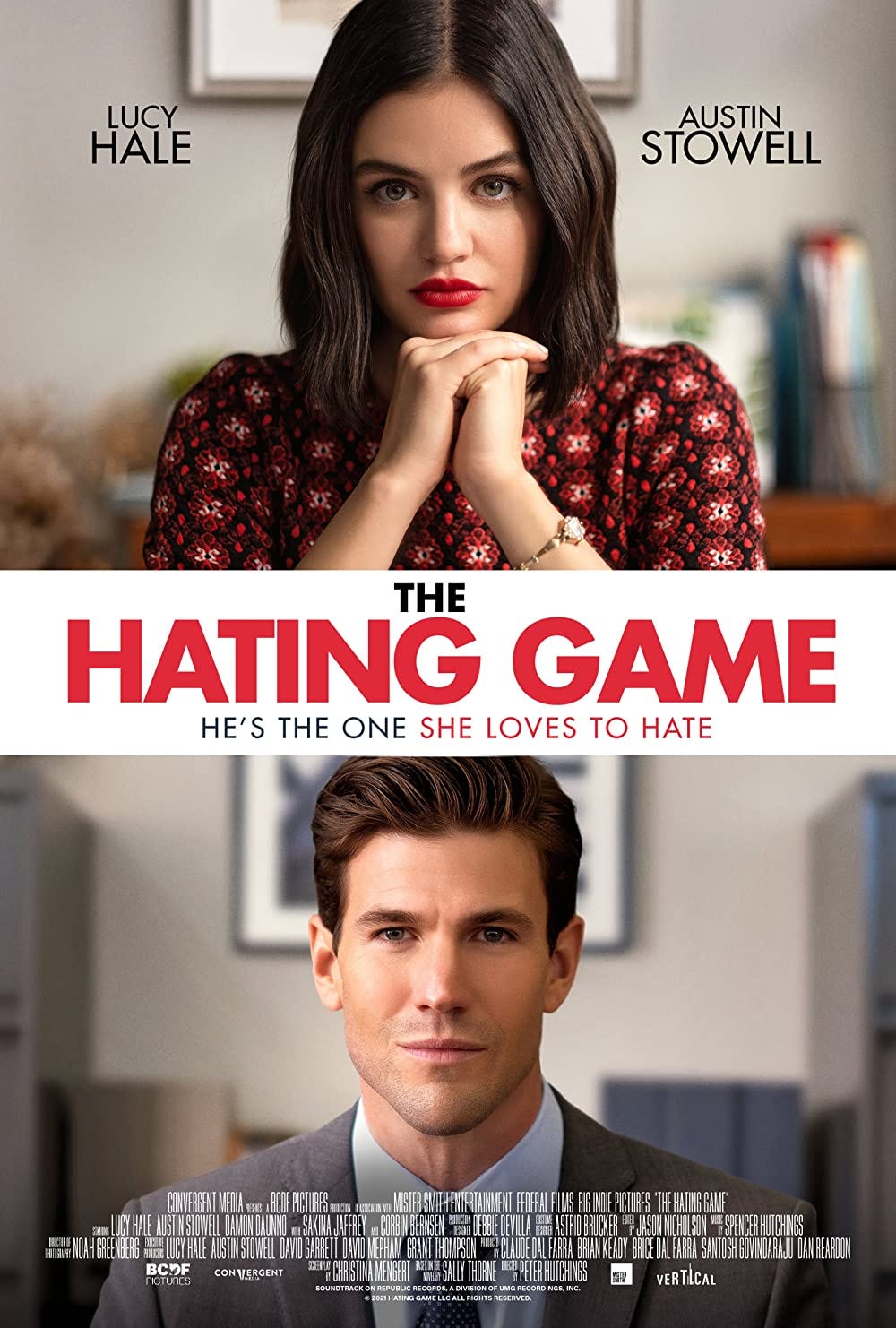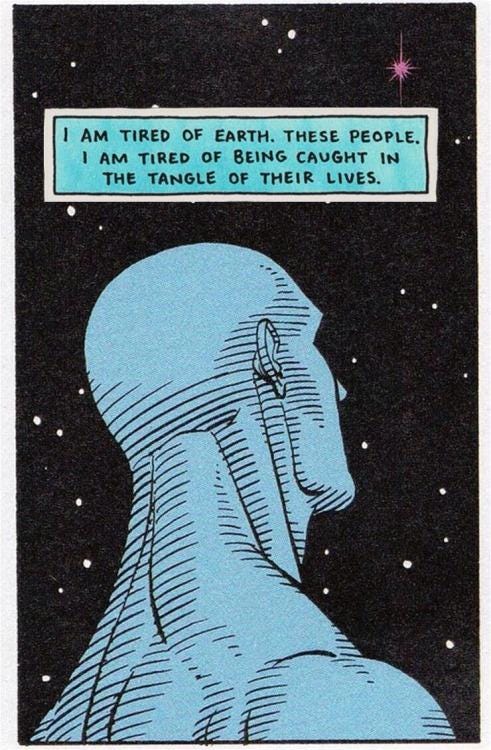Chutes Too Narrow
I’d gained a couple pounds; my girlfriend was displeased.
She was displeased about other things, too, but the weight thing, let’s say, loomed large.
After weeks of fretting, finally I said, “I think most people would say I’m… skinny?”
She looked at me steadily. “You’re narrow.”
🎀🌸🐷🎀🌸🐷🎀🌸🐷🎀
When I protested, she explained: in the three years we’d been dating, she had not gained weight.
As explanations go, it felt pretty thin to me.1
Nonetheless, she wasn’t sure she could stay in the relationship.
Yadda yadda anguish, I broke up with her, instead. They say it’s good to date people you can grow with.
🎀🌸🐷🎀🌸🐷🎀🌸🐷🎀
My mom reiterated her position that I should’ve been dating Jennifer Lawrence all along. (I could’ve told her not to do Passengers.)
In lieu of JLaw, my coping mechanism was to fall back on old habits. I have a deranged lack of caution when it comes to crushing on coworkers; historically, my relationship to professional peers is the relationship of lemmings to cliffs.
I recently watched this rom-com on a plane:
See, they work together, and they hate each other, but really, they’re flirting. Together, they find bliss.
Funnily enough, that’s precisely my experience of dating coworkers. Only, in reverse. Obviously.
After the big breakup, another coping mechanism was watching lots of movies. It’s when I finally got around to watching Anna Kendrick’s opus, Pitch Perfect.
🎀🌸🐷🎀🌸🐷🎀🌸🐷🎀
I can’t help but like acapella, despite everything about it.
I like it for their persistence in the face of the invention of instruments.
I like it despite the intensity with which a chthonic upperclassman, chatting me up in a frat basement during freshman orientation, urged me to audition for his acapella group. Why? Because—of all things—“Girls love it, dude.”
I don’t remember how I responded. It wasn’t, “Sir, you know what girls—women—love even more?2 People they work with at their jobs inside their offices and then on Slack inside their apartments if there’s a pandemic which rather than if is a matter of when.”
I think I said, “I can’t sing, haha,” instead.
🎀🌸🐷🎀🌸🐷🎀🌸🐷🎀
The first friend-wedding I ever attended was an acapella wedding.
See, the bride and groom met in their college acapella group. Which meant that most if not all of the bridesmaids and groomsmen were also from the acapella group. Which meant that the plan for the ceremony was to have the wedding party serenade the bride and groom with acapella songs.
This plan nearly worked.
Instead, the wedding party was so overcome with the emotion of the moment that they kept breaking into sobs mid-song. A song might start smoothly, just a few wet-eyed warbles—then one or two of them really lost it and the rest lost it too.
The wedding planner’s error was forgetting that acapella persons—like their cousins, theater kids—experience emotions differently than normal people. Having them sing for their own colleagues—at their literal wedding—was like asking the Incredible Hulk to do brain surgery. There’s no question he can pick up the scalpel. The question is whether he can put it down.
As much as I want to make jokes, it was a beautiful and moving scene. Funny, too; at times both the crowd and the singers couldn’t help but laugh.
It became less funny and more funny when my first-ever friend wedding turned into my first-ever friend divorce.
The word “acapella” comes from Tuscan dialect for “one capella,” meaning dramatic irony or twist of fate. That sentence is made up but the divorce part is not.3
I think about that ceremony every time I’m at a wedding, and not because of the wedding party cry-singing. It’s because two of them started a band with instruments, and their hit song is essentially illegal for DJs not to play at weddings.
Does that make me feel famous, despite my outrageously tenuous connection? I thought you’d never ask.
(In college I had a small crush that became a large crush when I saw her deliver a solo in her acapella group. Later we attended a semiformal, platonically. She’s now on track to be the first person I know personally with an eight-figure salary, if she doesn’t already have one. Between her job and those guys’ band, I was apparently an idiot not to audition.)
🎀🌸🐷🎀🌸🐷🎀🌸🐷🎀
The only thing I was missing, as an acapella-adjacent American, was Pitch Perfect. After the big breakup, I watched it on a plane.
When I told my friend how much I enjoyed it—it’s been described as Anna Kendrick’s opus, by me—he said, “You know who loves that movie?”
He said her name, which is not Lucy.
Not-Lucy is a mutual friend I’d met through his wife. “Oh, God,” I thought, and probably also said.
Let me explain.
My friend and his wife hadn’t been trying to set me up with Not-Lucy, exactly; more accurate to say they shipped us, as the youth say. It made sense to them. And it made plenty of sense to me.
The problem was, my friends’ encouragement aside, I wasn’t sure I made sense to her.
The Thick of It
The routine with Not-Lucy was: comment on each other’s Instagram selfies, then DM, maybe text. That’s as far as it’d gone; our final form, it seemed, was flirtatious acquaintances. I was approximately at peace with this; more than that, I feared further rejection.
I was, therefore, surprised and delighted when texting her about Pitch Perfect, of all things, led quickly to Making Actual Plans.
The plan: watch Pitch Perfect 2.
She’d recently switched departments at work, she explained, so she was going to be working late every night for six weeks. (Incidentally, this is something a character played by Anna Kendrick would say.) But after six weeks, she was free. We picked a date.
Later I went to dinner with some guys. I told them excitedly about Pitch Perfect 2.
My friend Corey said, “When is it happening?”
After dinner, taking the train home, I checked my email. Corey had sent a calendar invitation to everyone at dinner, six weeks in the future. “Alex and [Not-Lucy] watch Pitch Perfect 2.”
Six weeks and one day later, I wake up to texts asking how it went, watching Pitch Perfect 2, which absolutely of course did not happen because “I’m busy for six weeks” is just a specifically unusual way of saying “I don’t actually want to hang out.”
You know the scene where Charlie Brown goes to kick the football and Lucy pulls it away?
In the cartoon, Charlie never learns. I resolved to do better.
Twist of Fate
Soon thereafter, I decided with great suddenness that I needed to leave Brooklyn and move to Los Angeles.
It didn’t hurt that I’d stepped on the rake of dating a Brooklyn coworker; the company, conveniently enough, had an office in L.A.
But ultimately, moving was the upshot of the emotional Rube Goldberg sequence kicked off by the big breakup, itself kicked off by my big, fuckin, body—which truthfully was nearly the same size it had always been.
It was ironic, then, that as soon as I became an L.A. resident, I started getting fat for real.
Was it subconscious spite? “I’ll show you narrow,” kinda deal? Maybe! Also, I went from walking everywhere every day (New York) to driving everywhere every day (Los Angeles). That played a large part.
Before long, Not-Lucy visited L.A.
“Come over,” my friend said. “She’s having dinner at our place.”
Fat chance, I thought. What do I look like, a moron?
Cut to: I’m at dinner at their place like an hour later. She’s there.
And shit if it doesn’t almost seem different this time—the proverbial vibe. Dare I get my hopes up again?
Here’s the big twist. To my bewildered joy, Pitch Perfect 2 was a go.
Was it my imagination that gaining weight made the difference? It was not. Afterward Not-Lucy explained: “You look like a man now."
In “Flowers for Algernon,” the developmentally disabled narrator takes a radical experimental drug for cerebral health. Previously, he was hardly able to function in society given his cognitive impairments; as the drug takes effect, he is astonished as his intelligence grows rapidly. Soon he is discussing ideas with scientists; before long, his cognitive powers reach such prodigious heights that he finds even our species’ most brilliant researchers hopelessly dull.
Then the drug starts to falter. His intelligence decays, first slowly, then all at once. He returns to his original condition, now accompanied by the painful memory of temporary brilliance.
This is an extremely dramatic4 way of telling you that when the pandemic started, I left L.A.; I’d lasted less than a year. I moved back to Brooklyn. I walked everywhere.
Nature was healing. I lost the weight.
I had coffee with Not-Lucy. As we parted ways, she kissed me on the cheek; she wasn’t sure when she’d be free again.
It could’ve been worse. We could’ve been coworkers.
SEE YOU NEXT FRIDAY, DEAR FRIENDS.
Maybe I was being thick about it.
Not having their preferences described categorically.
He is now happily remarried (to a different woman).
I too was a theater kid, after all







